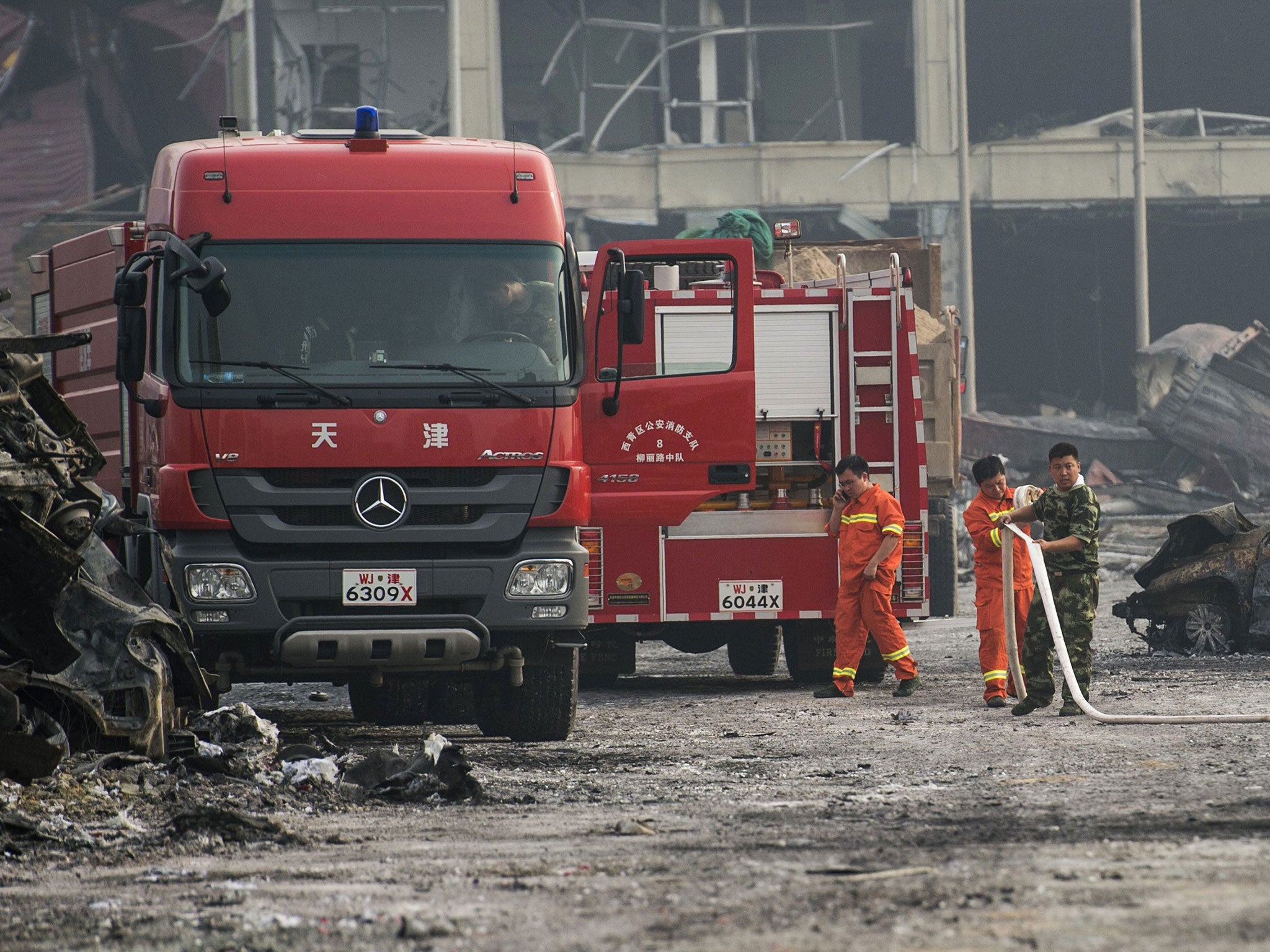Tianjin explosions: Were China's part-time firefighters to blame for tragic chain reaction that left at least 114 dead?
Questions are being raised about whether the crews had been properly trained to deal with the emergency at a chemical warehouse

Your support helps us to tell the story
From reproductive rights to climate change to Big Tech, The Independent is on the ground when the story is developing. Whether it's investigating the financials of Elon Musk's pro-Trump PAC or producing our latest documentary, 'The A Word', which shines a light on the American women fighting for reproductive rights, we know how important it is to parse out the facts from the messaging.
At such a critical moment in US history, we need reporters on the ground. Your donation allows us to keep sending journalists to speak to both sides of the story.
The Independent is trusted by Americans across the entire political spectrum. And unlike many other quality news outlets, we choose not to lock Americans out of our reporting and analysis with paywalls. We believe quality journalism should be available to everyone, paid for by those who can afford it.
Your support makes all the difference.The rapid chain of explosions that destroyed a warehouse district in the Chinese port of Tianjin could become one of the world’s deadliest disasters for fire crews as at least 21 firefighters are confirmed dead with scores of others still missing.
Questions are being raised about whether the crews had been properly trained and equipped to deal with the emergency at a warehouse that stored a volatile mix of chemicals, including compounds that become combustible on contact with water.
For a third day, angry relatives of 64 missing firefighters converged on a hotel today to demand information about their loved ones from government officials.
“I’ve received no information from the authorities whatsoever,” said Liu Runwen, whose 18-year-old son, Liu Zhiqiang, has been missing since he responded to the fire on Wednesday night.
Mr Liu said his son joined the force two years ago on the recommendation of a friend and embraced the danger despite safety concerns. “He was proud to be a firefighter who could serve the people,” Liu said. But he had questions about whether his son was sufficiently prepared.
By today, 114 people had been confirmed dead in the blasts, which destroyed several warehouses, crumpled shipping containers and shattered windows several miles away. Police have cordoned off the area, and more than 6,000 people have been forced into temporary shelters or are staying with friends and family. Hundreds of displaced residents have demanded compensation.
Local officials have yet to comment on the possible cause of the explosion and the fire that preceded it. However, the Global Times newspaper, citing chemical industry experts speaking on condition of anonymity, said the blast was probably triggered by a flammable substance such as industrial alcohol stored on the site.
Other reports suggested that high summer temperatures may have been a factor, along with the possibility that water being sprayed by the firefighters sparked a chemical reaction.
Zhong Shengjun, a social scientist who studies industrial safety at Northeastern University in Shenyang, said: “We can’t rule out that when firefighters tried to cool down the area, they sprayed some water onto some alkali metals that should not be in contact with water. They hadn’t been able contact the warehouse executives in time to find out exactly where different chemicals were placed.
“This disaster has exposed several problems, such as the poor management of dangerous chemicals.”
A system whereby dangerous chemicals are tracked on their containers by bar code should already have been installed by China, but it has yet to be adopted at its ports, Mr Zhong said.
“You need to know ahead of time what you’re dealing with,” Glenn Corbett, an associate professor of fire science at John Jay College of Criminal Justice in New York, said.
Foreign companies including Toyota and Panasonic suspended operations around the Tianjin port.
Many of the Tianjin firefighters were not part of a full-time department, but had been hired on one-year contracts to act as an auxiliary firefighting force.
One of contract firefighters, 18-year-old Zhou Ti, survived only because he was buried so deeply under his colleagues’ corpses. Knocked to the ground by the initial blast, Mr Zhou said he tried to cover his head before blacking out. “I recall nothing after that,” he said.
AP/Reuters
Join our commenting forum
Join thought-provoking conversations, follow other Independent readers and see their replies
Comments